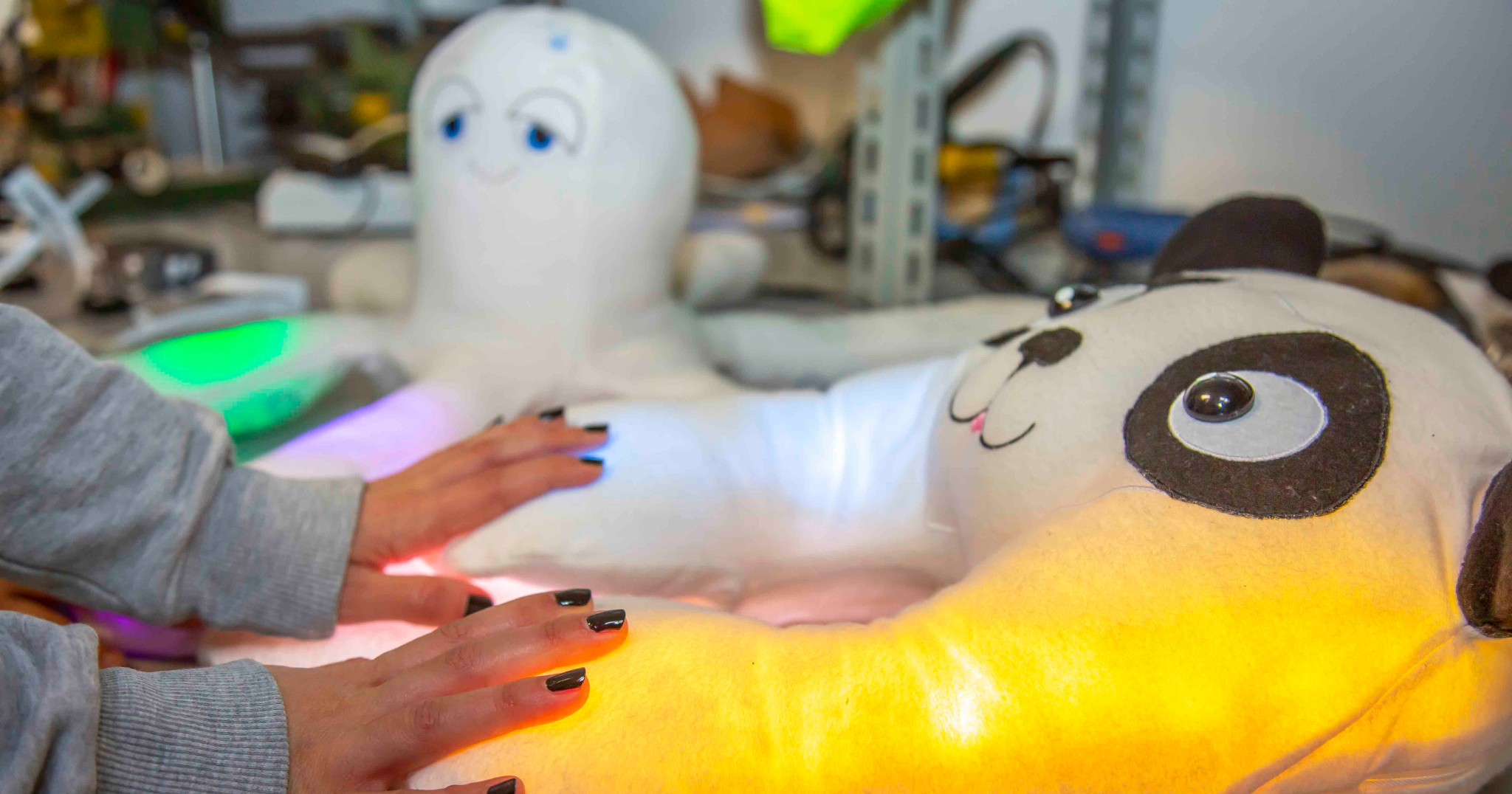Sept 6, 2024
The Use of Transitional Wearable Companion Toys to Promote Children’s Emotional Intelligence: The Italiacamp study in collaboration with CNR
The Emotion-Lab programme, a pilot study conducted by Italiacamp in collaboration with the Institute of Cognitive Science and Technology of the National Research Council, involved children between 8 and 10 years old with the aim of promoting the development of emotional intelligence through the use of Transitional Wearable Companion.

The development of cutting-edge technologies is an increasingly central theme in academic research related to learning and education. Emotion-Lab proposes a true educational model that encourages the development of emotional intelligence in children, based on a particular technology: a soft interactive plush toy.
These are the so-called Transitional Wearable Companions (TWC), interactive devices designed as toys that generate lights, sounds, and gentle vibrations during use, responding to sensory inputs with the aim of allowing children to understand, evaluate, and express their emotions. Initially designed to stimulate the engagement and social interaction of children with Autism Spectrum Disorder (ASD), in the experimental study by CNR and Italiacamp, the use of TWC was extended to typically developing children aged 8 to 10 years to encourage empathy and stimulate emotional control, as well as creative thinking and critical sense.
The Study
The study, supported by Italiacamp and the IM-TWIN project through European research funds, involved 44 children from a third and a fifth grade class at I.C. Alberto Sordi in Rome (22 for each class). Through a learning pathway guided by teachers and consisting of six one-hour sessions, students participated in various group activities aimed at interacting with these special devices to educate them about awareness of their internal and manifest emotional states, adequately expressing their emotions and learning to recognise and understand those of others.
In this emotional journey, the children interacted with an exceptional companion, the Panda PlusMe. In each session, students could name their companion and share emotions and experiences with it, attributing colours and sounds to them and then comparing them with those of their classmates.
Results
Among the main conclusions of the study, presented also at the Interaction Design and Children, IDC 2024, the international conference in Delft (Netherlands), is the confirmation of the importance of Transitional Wearable Companions as mediators and activators of emotions, presenting themselves to children as an extension of themselves through which to recognise and bring out their feelings.The programme has also been shown to be effective in improving mutual understanding and social cohesion, and thus potentially useful in reducing social distress phenomena such as bullying and cyberbullying.
For a more comprehensive analysis of the study and to learn more about the results, the paper titled The use of Transitional Wearable Companion Toys to Promote Children’s Emotional Intelligence: the Emotion-Lab Program is available on the ACM Digital Library at this link: https://dl.acm.org/doi/pdf/10.1145
Acknowledgements
The authors:
Clara Sardella, Italiacamp
Claudia Di Marco, Italiacamp
Jasmine Miozzi, Italiacamp
Martina Porcelli, Italiacamp
Riccardo Santilli, Italiacamp
Beste Özcan, Inst. of Cognitive Science and Technologies, National Research Council, ISTC-CNR
Massimiliano De Luca, Inst. of Marine Engineering, National Research Council, INM-CNR
Alessandro Pecora, Inst. of Microelectronics and Microsystems, National Research Council, IMM-CNR
Valerio Sperati, Inst. of Cognitive Science and Technologies, National Research Council, ISTC-CNR
Gianluca Baldassarre, Inst. of Cognitive Science and Technologies, National Research Council, ISTC-CNR Massimiliano Schembri, Inst. of Cognitive Science and Technologies, National Research Council, ISTC-CNR


